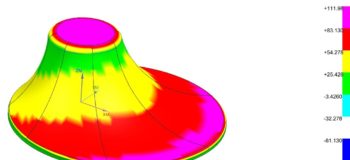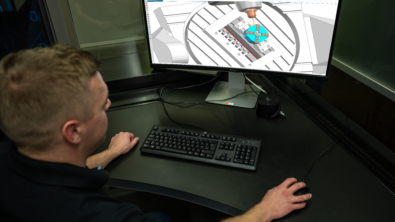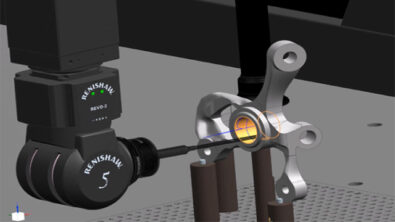Machining Steep and Non-steep Geometry (Part 2)

In my last post, I showed several wrong ways to machine steep and non-steep geometry. In this post, I will show a method that is better.

The NC programmer can limit a specific machining strategy based on the angle of the surface to the tool axis. The default angle is 65°, but I will use 45° for my demo.
I will use Z-Level machining for the steep areas. Z-Level steps down a given amount in the Z-axis on each successive pass as it profiles the geometry. Another name for this is “waterline machining”.
For the non-steep areas I will use Area Milling with the cut pattern set to Follow Periphery (the NX CAM name for offset pattern).
This ability to limit machining strategies by steepness allows for more efficient machining everywhere.
If you read my post on re-roughing, you will recognize the model in the following video. I decided to finish machine the troublesome ribs at the bottom of the mold cavity.
So, about that Grand Canyon hike – the next day I got up early, packed my tent and hiked out of that hole. I did it two hours quicker than the hike in. I also lost about 10 lbs (5 kg) over that two-day excursion, and I walked like Festus from Gunsmoke for a week. Still, I highly recommend hiking it if you ever get the chance.
Thanks for reading.



